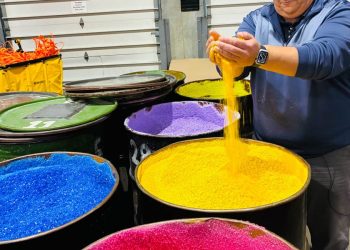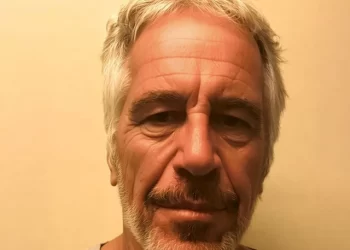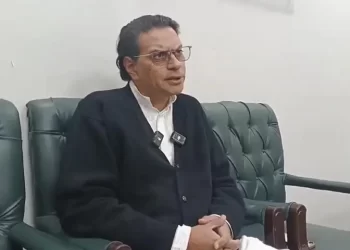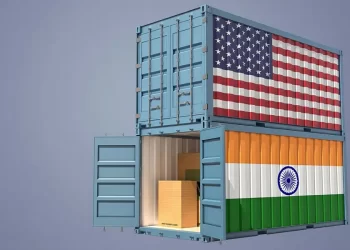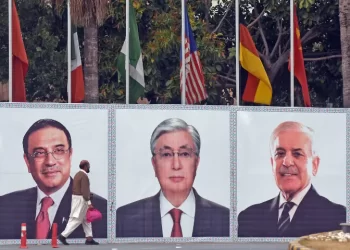My grandfather survived the first Nakba in 1948; he didn’t make it to the end of the second – this interminable war waged by Israel.
“Have me buried at the back corner of the house if the cemetery runs out of space.”
That was my grandfather Atiyah’s declared wish decades before the war on Gaza began in October last year. He knew, even then, that burying him after his death would be a challenge.
Since October 7, 2023, when Israel unleashed its continuing, relentless bombardment on the Gaza Strip, my grandfather’s health had been deteriorating. It got markedly worse during each Israeli ground invasion of Jabalia in northern Gaza, our home.
The siege on the northern part of the Strip, which has endured since the start of the war and has effectively cut the north off from the south, meant he never had the chance to recover between those deadly moments.
The drinking water ran out and the food we had to offer him was merely a few morsels. He couldn’t use the toilet for 10 consecutive days because he was so weak he couldn’t move, and that slowly destroyed his digestive system.
Even when his appetite returned and he might have eaten to regain strength, all we had was a little canned food – never enough to make a difference.
As well as air strikes, since the start of the war on Gaza, the Israeli army has launched three particularly brutal ground operations against Jabalia. As the third operation continues right now, hundreds – possibly thousands – of bodies remain buried under rubble, in the streets and homes of Jabalia.
The war on Gaza has left more than 43,000 dead already and we have reached the point that the earth needed to bury our dead is nearly depleted.
My grandfather wished he had been educated – he made certain his own children and grandchildren were. But instead of academic learning, his head was filled with stories and proverbs he always shared with us.
For the rest of his life after the Nakba, Atiyah lived with a deep longing for his home. He especially missed the grapevines on his family’s land, he told me, and he kept the millstone and bridal chest his parents carried from their home in Barbara until his death.
That chest became a source of wonder and stories for me and my siblings in later years. It held trophies and photographs of him as a small boy with his parents, Aysha and Mahmoud – the few items they managed to rescue from their home in Barbara.
My great-grandfather had given the chest to my great-grandmother as a wedding gift. “Despite the horrible warfare,” my grandfather told me, “my mother insisted on bringing the chest with her. She wanted her happy memories to live forever.”
He also kept the land deeds which proved his family’s ownership of 75 dunams (18.5 acres or 7.5 hectares) in Barbara.
Catastrophe strikes
As a Palestinian refugee, my grandfather spent his life living off his wage from ploughing land, farming and guarding orchards.
He was a large, strong man, descended from a line of large, strong men. My great-grandfather – his father – had been a fighter with the Ottoman Empire in Iraq and his left hand was badly injured. Despite that, he lifted heavy weights, according to what my grandfather told me. Some of my grandfather’s old friends told us children that one of his steps was two metres. We grew up with a fearful image of him.
Some of our family fled south early on in the war – all five of my aunts and my only uncle – my grandfather’s youngest child – along with their children and grandchildren. My grandfather never stopped asking for them after they left, particularly, my uncle.
I, my father and my siblings all remained and other family members had taken shelter in our house. There were about 40 of us, in all, living together.
On December 5, 2023 – nearly two months into the war – we were startled by a barrage of bullets and shells raining down on the neighbourhood, signalling the first ground invasion of our area. Shells struck the upper floors of our home with force, so Atiyah asked to be moved to his bed on the ground floor, near the door.
The army was blowing up the gates of neighbouring houses, and if they had entered and blown up our door, they would have killed my grandfather immediately. But God’s grace spared us.
Columns of tanks advanced, destroying everything in their path. Soldiers raided our neighbours’ homes and took people away to unknown locations, marking the start of an 11-day siege. These horrific events brought back my grandfather’s nightmares of the Nakba and he asked us: “Will I live through two Nakbas in my lifetime?”
During that first ground assault, the house was partially destroyed; some walls collapsed from the force of nearby air strikes. My grandfather’s sleeping area was exposed to the biting cold of December, which gnawed at his bones. He struggled to move his left hand – his right hand hadn’t moved for years.
On May 10, 2024, the army launched a second, large-scale ground operation against Jabalia, and our neighbourhood was among the areas ordered by Israel to evacuate.
As the army advanced towards our area, most of us – me, my six siblings and their spouses and children – fled to Gaza City. But my grandfather couldn’t come with us as moving him was too difficult, given his weight of about 130 kilogrammes. He also required special care when using the toilet, which caused him great difficulty, often taking hours to relieve himself – something that would be hard to accommodate anywhere we might flee.
My 66-year-old father refused to leave his father behind, insisting on staying with him even if it cost him his life. He told us: “If I die, I’ll die a martyr, but also a martyr loyal to my father.”
According to my father’s account, when the shelling intensified, my grandfather asked him to move him to the ground floor to avoid the shells, as was their usual routine. My father, alone, managed to lower my grandfather in his wheelchair down three flights of stairs, causing severe pain in his back and abdomen. The prolonged siege, lack of food and water, and extreme fear caused my grandfather to lose balance at times.
Shortly after the siege was lifted and we had returned to Jabalia, we heard groaning from the ground floor late one night. We rushed down to find my grandfather had fallen from his bed and was lying on his stomach on the floor, drenched in blood, barely able to speak.


